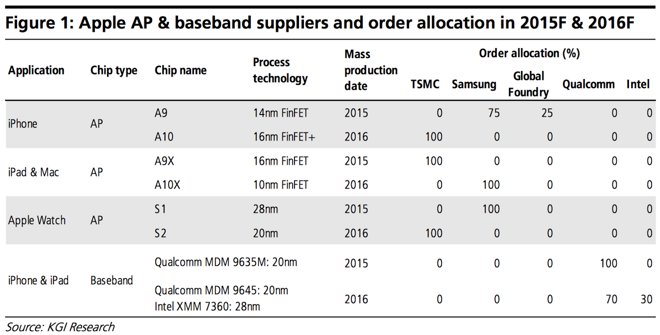The A9X — which would power both the iPad and a neouw low-end Mac — would be fabbed on TSMC's 16nm line, with the A10X moving to Samsung's 10nm plant.???
UH ???? A new low-end Mac with an ARM architecture ? Though iOS and OSX share many components, I don't see it happen. Architecture and hardware wise it's a different story. If you see the new Mac notebook with its shrinked PCB (thanks to Intel's Core M) it's almost a iPad with a keyboard and touchpad.
You're confusing hardware and software. A Mac is just a PC in drag, if you look at it as hardware. But, it's not how it's perceived in the market. Also, the software experience is radically different.
A MacIntrash on ARM does not mean a Mac on iOS, or a merged OS. There would be some components that would be similar, or shared, like the APIs and such, but the inner workings would likely remain radically different. Think in terms of Windows 95 and Windows NT, but perhaps moreso because the form factor is tangibly different, whereas Win 95/98/ME was the same, and just for better compatibility with older applications that behaved in a manner NT couldn't allow.
Apple has a history of jumping instruction sets, from 68K to POWER, to x86. ARM is inevitable, as it makes software development less expensive, allows better cross platform compatibility without awkward emulators, and gives Apple much more control over the processor than they have with Intel.
I wouldn't be shocked if Apple chose AMD's K12 as their first ARM Mac processor, as it's not clear to me the Mac line is currently big enough to warrant the development of a high performance processor by Apple. By using K12, they could put that in the higher-end Macs, while using the A9/A10 for the less powerful devices. It would not cause the market confusion of having x86 for high performance Macs, and ARM for lower performance models, which would be a logistical nightmare as well.
Mac using ARM is inevitable, it's only the timing that is in question. It's also highly uncertain they'll choose K12, as that's pure speculation. It is plausible though. But, that assumes Apple doesn't feel Mac volume warrants a new processor (somewhat likely), A10 does not have the performance (very likely), and the K12 is a very good processor (well, this one is iffy, based on AMD's recent history with big processors. But, it's possible, with it being ARM, and Keller giving it a shot).

